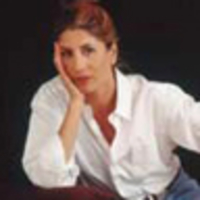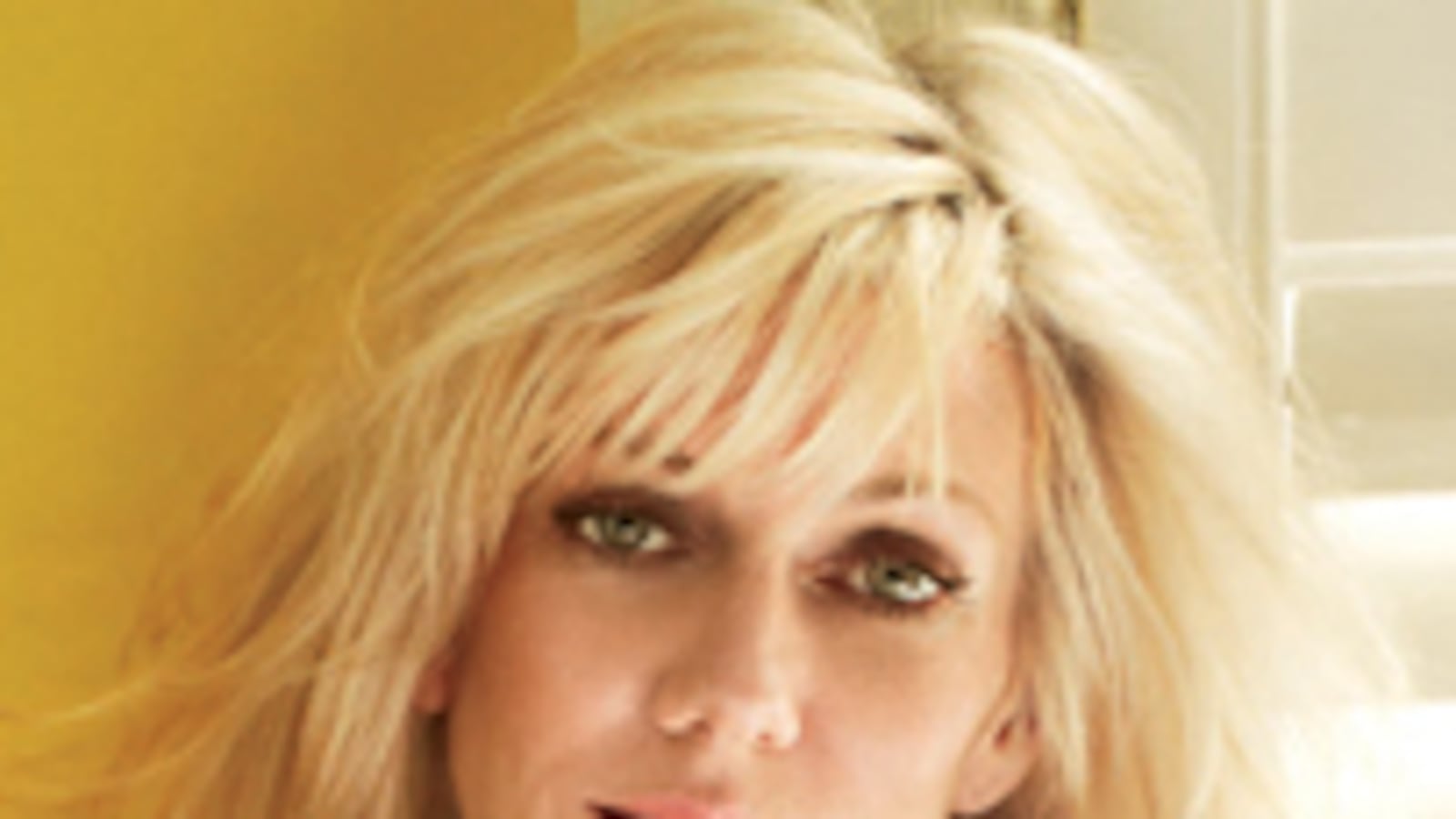
I remember meeting John and Elizabeth Edwards in 2002. It was in the elevator of the Wyoming, that grand pre-war building in Washington, D.C., and we were all en route to the same fete—for my book Cuba Confidential.
Though it was still early in Edwards’ national career, he radiated that electric aplomb of those divinely chosen, naturally gifted politicians. All of us in that elevator were happy and expectant: There was the party, and Edwards, of course, had already been summoned for national stardom. Elizabeth Edwards held her husband’s arm and laughed—they were a good-looking, joyous couple filled with hope.
Underneath the toughness, it seemed, was more toughness. What Rielle set her mind on, she said, she would get. Here was a woman who would not be denied.
I could have warned him then about the eccentric femme fatale that awaited him. I could have told him: “Beware! A woman has been living in our rental in West Hollywood looking to find herself and patiently awaiting you, down the road. Stop the movie of your life before tragedy and despair engulf you and your family.”
Using the same cri de coeur made famous by Delmore Schwartz in his masterpiece short story “In Dreams Begin Responsibilities,” I could have turned to Edwards, as Schwartz does in his story, and shouted: “Don’t do it! It’s not too late to change your minds, both of you. Nothing good will come of it, only remorse, hatred, scandal…”
But of course, I didn’t. Alas, my inner Cassandra failed me, and them.
Actually, Edwards’ future mistress, Rielle Hunter, was among the best tenants my husband and I ever had for our property in West Hollywood, just south of Melrose. During the years she occupied our 1920s California Craftsman, she scrupulously paid her rent on time, kept the place spotless, and even improved it, adding an alarm system at one point.
• Diane Dimond: John Edwards’ Other WomenBut without a doubt, she was an odd duck. A devotee of all manner of New Age worship, she invited various shamans and holy men to bless the property. We once returned home—we kept a cottage in the back for when we were in Los Angeles—to find a rotund minister from a Harlem church offering blessings outside the front door. Inside, she had a Buddhist altar, a Gohonzon, where she offered daily Nam-Myoho-Renge-Kyo chants. Every room was replete with colorful crystals “to transform energy,” along with talismans and assorted mojos. She told us she had the place undergo feng shui to enable the spirits to move properly—along with frequent “cleansings,” which did not involve Clorox.
One reason Rielle was such a good tenant who paid her rent in a timely fashion, she explained, was her comfortable alimony from a previous marriage to an attorney. As fate would have it, her ex was the son of Alex Hunter, the Boulder, Colorado, district attorney whose reputation suffered during the famous JonBenet Ramsay case, which I had covered for Vanity Fair magazine in 1997.
So we had that bit of history in common, but not much else. Rielle told us that she had grown up in a well-off family, originally named Druck, and had traveled between New York and Sarasota, Florida, where she did some serious horse training, along with other privileged kids.
Most of the time, Rielle busied herself with reinvention, devoting her time and her income to becoming a screenwriter/director/actress for her own small film—not a documentary—in which she also played the starring role. My husband, actor Robert Lesser, was often recruited to provide feedback, and he recalls that Rielle played the role of a bored housewife who lured her handsome gardener-handyman into a romantic afternoon assignation. In between cinematic sloppy kisses, he said, there were bursts of catchy screwball comedy.
While my husband found Rielle fun and entertaining, I found her a tad intimidating. Her self-confidence and self-esteem seemed boundless, buoyed by infinite belief in New Age principles of affirmation. Riddled with doubt from the gate, I marveled at Rielle’s assurance. Underneath the toughness, it seemed, was more toughness. What she set her mind on, she said, she would get. Here was a woman who would not be denied.
But gold digger she was not. She had known creature comforts growing up that she had left behind, re-christening herself with a new concocted name—she wanted more, she told us repeatedly, with laser certainty; something grander beckoned her.
In time, the alimony ran out and, to our regret, Rielle moved out, explaining that she could no longer afford the rent. Not long after, we learned that she was working as a hostess at a vegan restaurant on La Cienega, and later another restaurant in Brentwood. I admired this about her. In the steely class system of L.A., waiting on folks she once dined with could not have been easy.
But never did I doubt that she would rebound.
When the story of her affair with Edwards first broke in The National Enquirer, reporters called us. It couldn’t be that Edwards, the next great white hope of the Democratic Party, was so recklessly endangering his future, and that of his party, country, family, and cancer-stricken wife.
Then friends who had met Rielle told us it was unmistakably clear to them that she wanted the story out, never mind the heat and stakes of the upcoming presidential campaign.
Rielle was going for it, they said, driving the story. In time, we came to understand and appreciate its seamless perfection. Rielle was finally center stage in her own film—one she wrote, directed, and starred in. And if she decided that what appeared to have a tragic ending should turn out like a romantic comedy, so be it.
That night in Washington in 2002, Edwards stuck out his hand to me and introduced himself—charming me with that twangy, wholesome Carolinian drawl. Oh yes, he said, he had much to learn about Miami-Havana-Washington politics. Oh, what you could tell us, enthused Elizabeth, as we walked into the grandest of parties.
Ann Louise Bardach is author of Without Fidel: A Death Foretold in Miami, Havana and Washington and the acclaimed Cuba Confidential. She is Daily Beast contributor, a PEN/USA award winning reporter, a member of the Brookings Institution Cuba Study Project, and was a contributing editor at Vanity Fair and has written for The New York Times, Washington Post Outlook, Los Angeles Times, and The Atlantic.






